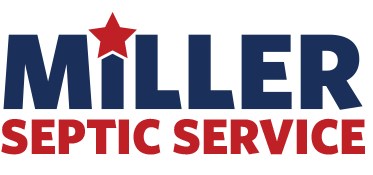Taking Care of Your Septic System
The average household septic system should be inspected at least every three years by a septic service professional.Committing a little attention to the care of your system can help to avoid the nightmare of a failing system. Assuming that your septic system was properly located, designed, and installed according to state codes, you are now in the driver's seat for the care of your system. By following the recommendations below, you can help your system to work properly for years to come.

Do's of Septic System Care
Proper care of your system requires day-to-day management as well as periodic maintenance.- Have your septic tank inspected and pumped regularly by a licensed septic tank contractor. Suggested frequency is 3-5 years.
- Conserve water to reduce the amount of wastewater that must be treated and disposed of by your system. Doing laundry over several days will put less stress on your system.
- Keep your septic tank cover accessible for inspectors and pumpings. Install risers with lids if necessary.
- Call your county health department or a registered septic tank contractor whenever you experience problems with your system, or if there are any signs of system failure.
- Keep a detailed record of repairs, pumpings, inspections, and other maintenance activities. Pass these on to the next homeowner.
- Repair any leaking faucets or toilets. To detect toilet leaks, add several drops of food dye to the toilet tank and see if dye ends up in the bowl.
Dont's of Septic System Care
Septic system maintenance is not complicated, and it does not need to be expensive.- Don't dig around the tank or drainfield, or build anything over it, and don't cover it with a hard surface such as concrete or asphalt.
- Don't use a garbage disposal, or at least limit it's usage. Disposals increase solids loadings to your tank by about 50%, so you have to pump your tank more often than normally suggested.
- Don't plant anything over or near the drainfield except grass. Roots from nearby trees and shrubs may clog and damage the drain lines.
- Never enter a septic tank – toxic gases from the tank can kill. If your system develops problems, get advice from your county health department or a licensed septic tank contractor.
- Don't put in a separate pipe to carry wash waters to a side ditch or in the woods. This graywater contains germs that can spread disease.
- Don't drive over your tank or drainfield or compact the soil in any way.
Do Not Flush the following items
Don't use your toilet as a trash can or poison your system and the groundwater by pouring harmful chemicals and cleansers down the drain. Harsh chemicals can kill the bacteria that help purify your wastewater. See the list below for examples.- Coffee Grinds
- Condoms
- Paper Towels
- Dental Floss
- Disposable Diapers
- Cigarette Butts
- Waste Oils
- Cat Litter
- Sanitary napkins
- Tampons
- Pesticides
- Antibiotics
- Fats, Grease or Oil
- Paints
- Thinners
- Varnishes
